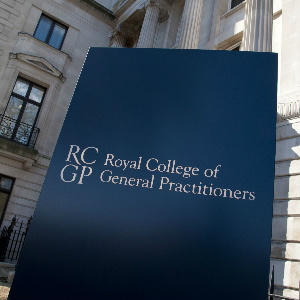The gap between white UK graduates and other graduates taking the RCGP’s exit exam is narrowing, the latest figures have revealed, following a lengthy legal battle.
The latest MRCGP annual report shows that the overall number of non-UK medical graduates who failed the clinical skills assessment (CSA) fell by nine percentage points – from 60% to 51% – from 2012/13 to 2013/14, and from 65% in 2011/12.
However, the proportion of non-white UK graduates failing the exam stayed the same.
The BMA welcomed the figures, but said there was still ‘a lot of work to do’.
This follows the long-running row about the differences in failure rates between UK graduates and international medical graduates, which sparked a judicial review hearing instigated by the British Association of Physicians of Indian Origin (BAPIO) in April last year.
The review ruled that the exam was lawful but the judge stressed that the RCGP needed to ‘eliminate discrimination’ in the MRCGP and tackle the differences in failure rates between white and non-white medical graduates sitting the CSA.
Related stories
Dr Maureen Baker: ‘The RCGP has long recognised differential rates’
Analysis: Where next for the MRCGP exam?
RCGP instigates wide-ranging review into diversity policies following CSA court case
Following the court case, the RCGP welcomed the judge’s ruling and agreed ‘further action is needed’ to support medical graduates who fail the CSA.
The college decided to put the diversity and membership across all its main areas of work under the microscope, including the MRCGP examinations and the recruitment of clinical leads, committee members and staff, and set up two groups to review its policies.
The latest figures also revealed that the failure rates of non-UK educated South Asians – which has traditionally been the group with the highest failure rates – fell from 64% in 2012/13 to 55% in 2013/14.
The number of black UK graduates who failed the exam dropped from 28% in 2012/13 to 20% in 2013/14, although the numbers involved were very small.
Dr Maureen Baker, chair of the RCGP, said: ‘The overall pass rate across all elements of the MRCGP assessment has increased between 2012-13 to 2013-14.
‘The key purpose of the exam is to ensure that all GPs who pass are fit and confident to practise independently and provide excellent and safe care for their patients. This increase means that there are more doctors, in the community doing this, which is good news.
‘The RCGP has long-recognised differential pass rates for IMGs and BME UK graduates taking the exam for the first time, which is the norm in professional and higher education examinations, but we are working with BAPIO, the British International Doctors Association, and other stakeholders to address this.’
Dr Krishna Kasaraneni, the chair of the BMA equality and inclusion committee and the GPC’s training and education subcommittee, said: ‘This is an encouraging step forward and follows on from concerted action taken by the BMA to address this issue. We have worked tirelessly with the Royal Colleges, GMC and medical education and training organisations to address differential attainment.
‘We recently brought together key stakeholders in this field to identify and prioritise a number of critical interventions that are likely to make a difference. We still have a lot of work to do and we will continue to work collaboratively to ensure that the process is fair for all doctors.’
Failure rates of selected groups
| Non white UK graduates | South Asian non-UK graduates | Overall non-UK graduates | White UK graduates | |
| 2013-14 | (112) 15.3% | (216) 54.80% | (322) 50.80% | (75) 4.90% |
| 2012-13 | (104) 15.6% | (333) 63.70% | (489) 59.80% | (48) 3.50% |
| 2011-12 | (123) 18% | (384) 69.40% | (543) 65.30% | (78) 5.80% |
Source: MRCGP annual report

















